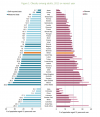BJJ Shawn
Level 6 Valued Member
According to this new study, I'm just fat because I got fat, not because of nature and now I'm a little mad at science.
"Contrary to what many people think - and tell themselves when they look in the mirror - there is no metabolism go-slow as a person progresses from their 30s to 50s. Metabolism speed was found to decline only when a person reaches 60."

 www.yahoo.com
www.yahoo.com
"Contrary to what many people think - and tell themselves when they look in the mirror - there is no metabolism go-slow as a person progresses from their 30s to 50s. Metabolism speed was found to decline only when a person reaches 60."
Battle of the bulge: Scientists discover the real reason for middle-age spread
Piling on the pounds in middle age is an affliction familiar to many, but the common excuse of a slowing metabolism is no longer a valid excuse, according to a new study.




